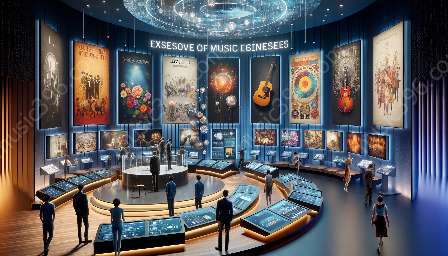Copyright law plays a critical role in the sourcing of music for educational purposes, particularly in the field of musicology. This article aims to explore the intricate relationship between copyright law, music sourcing, and musicology, delving into the legal, educational, and artistic aspects at play.
The Fundamentals of Copyright Law
In essence, copyright law exists to protect the rights of creators of original works, including musical compositions and recordings. It grants exclusive rights to the creators, allowing them to control how their works are used and distributed. Copyright protection extends to the reproduction, distribution, public performance, and creation of derivative works from the original material.
Impact on Music Sourcing for Educational Purposes
Music sourcing for educational purposes involves the acquisition and utilization of musical content for teaching and learning. Copyright law directly influences this process by defining the permissions and limitations related to the use of copyrighted music in an educational context. Educational institutions, educators, and students must adhere to copyright regulations when sourcing and utilizing music in their academic endeavors.
Educational Exemptions and Fair Use
One crucial aspect of copyright law with relevance to music sourcing in education is the concept of fair use. Fair use allows for the limited use of copyrighted material without the permission of the copyright owner, provided that the use is transformative, non-commercial, and does not significantly impact the market for the original work. In educational settings, fair use exemptions can apply to activities such as classroom instruction, research, criticism, and commentary, offering some flexibility for using copyrighted music in an educational context.
Challenges and Compliance
Despite the existence of fair use and other educational exemptions, navigating copyright law in music sourcing for educational purposes can be complex. Educational institutions and individuals must ensure compliance with copyright regulations to avoid legal repercussions. This often involves obtaining appropriate licenses for the use of copyrighted music, whether in physical or digital formats, and adhering to any stipulations set by rights holders.
Digital Technologies and Music Sourcing
The digital age has revolutionized the sourcing and accessibility of music in educational settings. Digital technologies, online platforms, and streaming services have made vast collections of music readily available for educational use. However, the ease of access also amplifies the need for understanding and adhering to copyright law, as the potential for unauthorized use and distribution of copyrighted music becomes more prevalent.
Intersection with Musicology
Musicology, the scholarly study of music, further highlights the significance of copyright law in music sourcing for educational purposes. Musicologists engage with various aspects of music, including its historical, cultural, and theoretical contexts. The sourcing of music for academic research and analysis necessitates an awareness of copyright regulations, especially when considering the utilization of copyrighted recordings and scores in scholarly publications and presentations.
Educational Outcomes and Artistic Integrity
Exploring the role of copyright law in music sourcing for educational purposes also brings attention to the educational outcomes and artistic integrity involved. Copyright regulations aim to balance the rights of creators with the societal benefit of education and access to knowledge. Understanding copyright law in music sourcing enables educators and students to respect the rights of creators while fostering a conducive environment for educational and artistic expression.
Conclusion
Copyright law serves as a cornerstone in music sourcing for educational purposes, shaping the ways in which music is utilized in educational settings and musicology. By acknowledging the legal framework, embracing educational exemptions, and promoting compliance, educators and students can navigate the complexities of copyright law while honoring the creative contributions of musicians and composers.



















